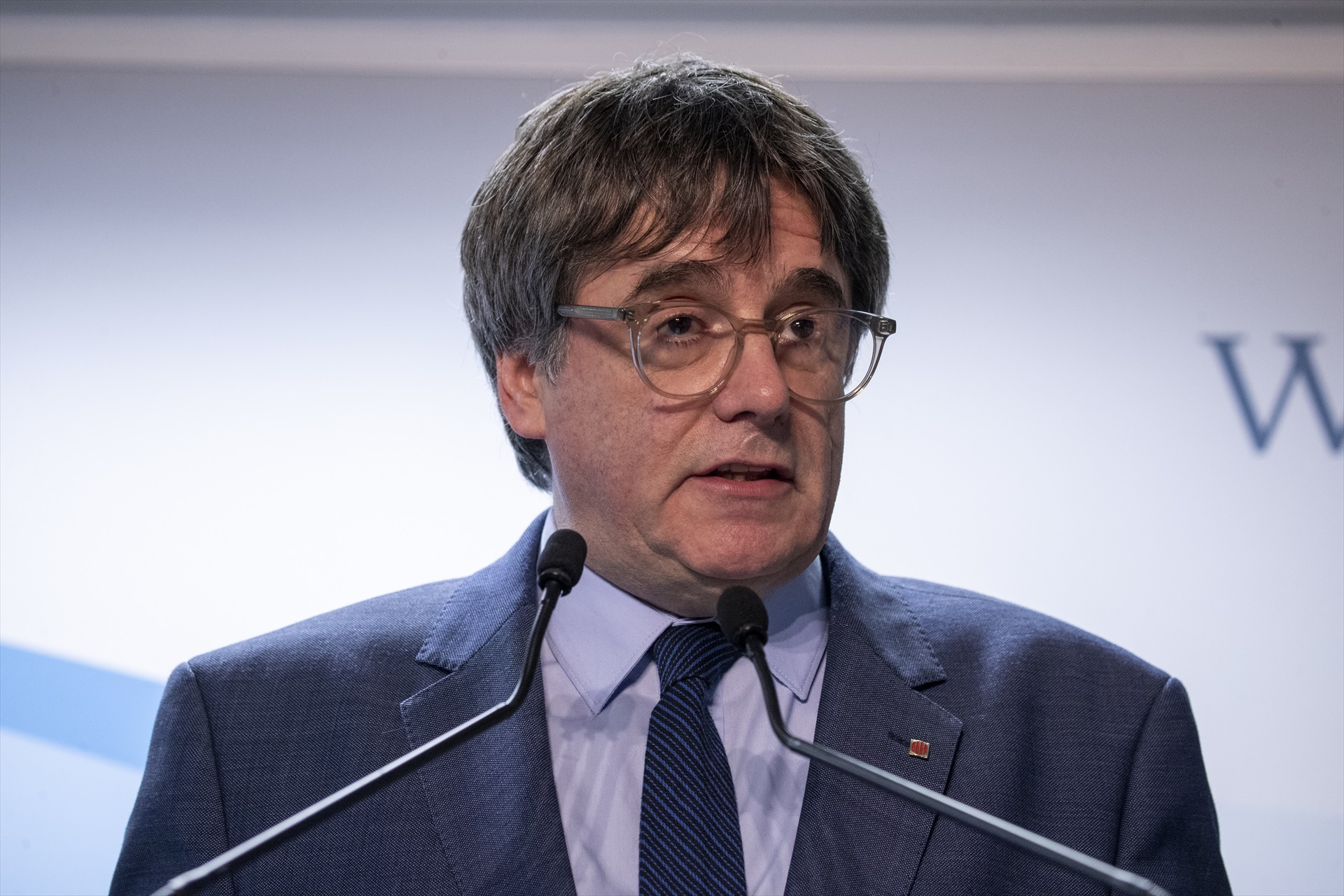Manuel García-Castellón continues his crusade against Catalan president-in-exile Carles Puigdemont and takes another step in his attempt to exclude him from the scope of the independence process amnesty law, currently on its way through the Spanish parliament. The judge of the National Audience confirmed this Monday that two policemen who were injured in Barcelona's Plaça d'Urquinaona in a October 2019 demonstration are to conduct private prosecutions in the case of the Democratic Tsunami protest platform, but the key to the judge's providence can be found at the end of the text. The argument that underscores García-Castellón's justification is that he cannot "minimize" the Democratic Tsunami protests, in which "those under investigation in the case could have been participants". And he states that "the serious consequences caused" by the protest - in this case, injuries to the two police officers that allegedly led them to be granted early retirement - are "incompatible with the right to life and physical integrity". The judge explicitly mentions Article 2 of the European Convention on Human Rights, which refers to the right to life. In fact, these very events will be excluded from the amnesty law following the amendment agreed on by pro-independence parties Junts and ERC, along with the Socialists (PSOE), with the aim of further protecting those accused in Democratic Tsunami case from lawfare-style judicial persecution.
Let's recap. After García-Castellón accused twelve people investigated in the case of the Tsunami Democràtic social-media protest platform for terrorism, including Carles Puigdemont and ERC general secretary Marta Rovira, the pro-independence parties urged the PSOE to modify the wording of the amnesty law: given this direct manoeuvre by the judge, it was necessary that not all crimes of terrorism were excluded from protection under the amnesty, as was the case in the initial draft registered by the PSOE. After weeks of to-and-fro between Junts, ERC and the Socialists, they reached a common agreement on an amendment delimiting how terrorism is defined in the new law. The result: what remains outside the protection of the amnesty are acts of terrorism which, "manifestly and with direct intent, have caused serious violations of human rights", in particular, those provided for in Articles 2 and 3 (relating to the right to life and torture) of the European Convention for the Protection of Human Rights and Fundamental Freedoms and in international humanitarian law.
Forty-eight hours have passed since Congress's justice committee gave the green light to this text, which in the eyes of the pro-independence parties strengthened and protected the Tsunami (despite the fact that in public and in private they recognized that it is impossible to guarantee 100% protection given the unpredictable actions of the Spanish judges), and now judge García-Castellón has responded quickly by taking further steps to continue trying to ensure that neither Carles Puigdemont nor Marta Rovira nor the rest of those investigated in the Tsunami case are included in the amnesty.
In today's resolution, García-Castellón also points out "the possibility of imputing to the hierarchy of the [Tsunami] organization the actions materially carried out by others". In the same text, the judge places Carles Puigdemont at the "highest apex of the organization" of Democratic Tsunami.
A fragment of an El Salvador ruling
The judge also cites a 2021 Supreme Court ruling that confirmed the conviction of Inocente Montano for the murder of five Spanish Jesuits in El Salvador in 1989. García-Castellón borrowed a fragment from the ruling to state that “co-authors are all those who perform a necessary part in the execution of the collective plan, even if their respective contributions do not produce the crime by themselves. Therefore, it is not necessary for "each co-author to carry out all the material acts".
In his exposition, García-Castellón explains that it is necessary to start from an organization (the Democratic Tsunami) "in which all members assumed the risk of the results that could have be caused as a result of the actions they promoted". The judge also indicates that no investigative inquiries have been carried out and it has not been possible to hear the injured parties or make forensic reports. For this reason, "it cannot be inferred" whether, due to the type of object that was thrown at the two injured policemen, the place of impact and the position of the assailant, "an intention to injure or kill could be appreciated ".
The Tsunami was not "a passive guest" at the rallies
In his resolution, García-Castellón also stresses that Tsunami was not "a passive participant in the mobilizations that shook different cities in Catalonia, and that had as one of their bloodiest scenes the events that unfolded in Barcelona's Via Laietana and in Plaça Urquinaona”. For this reason, the judge maintains that Tsunami cannot be exempted from any responsibility. The judge recalls that in the document he released on November 6th he already asserted that Tsunami had announced a call for a general strike that day on social media and argued that it was precisely "under the cover of this strike" that "there were serious disturbances of social peace and public order".
García-Castellón also explains that the evidence points to participation by Democratic Tsunami in the events of that day and indicates that a conversation between president Puigdemont and another of those investigated, Josep Capmajó. is "particularly striking", as incriminating evidence. The magistrate states that Puigdemont "seems to assume the possibility that fatalities could have occurred and his ability, as he held the command of the action, to stop this possibility".

